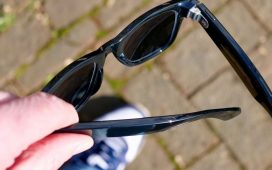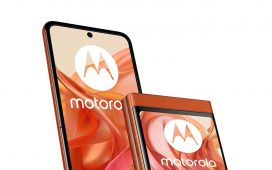When Steve Jobs introduced the first iPad 14 years ago, he said there was a place for a third device that was between a laptop and a smartphone — as long as that in-between gadget did some essential tasks better than each of the others.
For some of you, the iPad is exactly that. It’s more comfortable than a phone or computer to watch YouTube videos, dash off an email or distract your kiddo.
On Tuesday, Apple released updated iPad models that the company expects to perk up its sagging sales. Apple also boasted about the company’s artificial intelligence capabilities, an area where Apple is under pressure to prove itself.
But the iPad has not become as widespread as computers and, especially, smartphones. As the iPhone and other smartphones became more capable, larger and globally ubiquitous, they made the iPad irrelevant.
Many of you love your iPads. Great! Even technology that doesn’t reach its hoped-for potential can still be useful. The iPad might have changed your habits but it and other tablets didn’t have a broad impact.
The iPad’s history shows that technology founders like Jobs who are revered for seeing the future can get it wrong sometimes. That’s a useful lesson when executives like Elon Musk or OpenAI’s Sam Altman blare predictions about the future of transportation or AI.
Months after the iPad debuted in 2010, Jobs made an analogy involving cars and trucks.
Personal computers, he said in an interview, would still be useful for many people but would increasingly become a niche, as trucks did once Americans moved to cities and fewer people needed a workhorse vehicle on farms.
When Steve Jobs introduced the first iPad 14 years ago, he said there was a place for a third device that was between a laptop and a smartphone — as long as that in-between gadget did some essential tasks better than each of the others.
Associated Press File Photo, 2010
(Jobs probably didn’t mean the light trucks like pickups and SUVs that dominate America’s consumer vehicle market.)
Jobs said it was tough to predict the future, but he believed that the iPad could become a mass-market device as cars became for personal transportation.
Not so much.
Smartphones, including his own iPhone creation, became the way that billions of people got online and scroll, talk, read, watch, listen and socialize.
The smartphone is the car. The laptop and the iPad are more like trucks.
You can see it in the numbers.
Each year, there are about 1.1 billion new smartphones sold globally. There were about 260 million computers sold last year, according to research firm IDC. There were nearly 130 million iPads and other tablets sold in 2023, IDC estimates.
IDC research manager Jitesh Ubrani says that thanks to a pandemic-related purchase binge for iPads — which also affected computers — slightly more people own iPads today than they did when new iPad sales peaked a decade ago.
Still, billions of people use smartphones. At most a couple hundred million people have iPads. IDC expects the number of people using iPads to increase at best marginally from here.
Walt Mossberg, the pioneering personal technology journalist formerly with the Wall Street Journal and Recode, told me that the best way to measure the iPad’s impact is in stealing time that people, including him, would have otherwise spent on laptops.
(Mossberg and Kara Swisher led the 2010 interview in which Jobs made the cars and trucks analogy.)
Mossberg said long before he retired from his day job in 2017, he preferred his iPad for many tasks other than taking notes and writing. He estimated he used his laptop at least 50% less because of his iPad.
Still, Mossberg said, the smartphone is “the true personal computer” for him and the world.
He estimates he uses his Mac laptop a couple of times a week, his iPad a couple of times a day — and his iPhone many times a day. He used his iPhone to email me as he waited for a doctor’s appointment.
Jobs’s missed prediction about iPads feels relevant now, as technologists bet that AI will turn the smartphone into a more niche device.
Altman is among the people imagining you’ll use your smartphone less and shift more tasks to AI-specialized voice assistants in devices you wear like glasses or brooch-style clip-ons.
We’ll see. I find it instructive that Jobs didn’t say in that 2010 interview what came true: that the smartphone — not the iPad or the laptop — became the first computer used by billions of people.
That calls for all of us to be careful about predicting what could be the next technology hit or niche.









